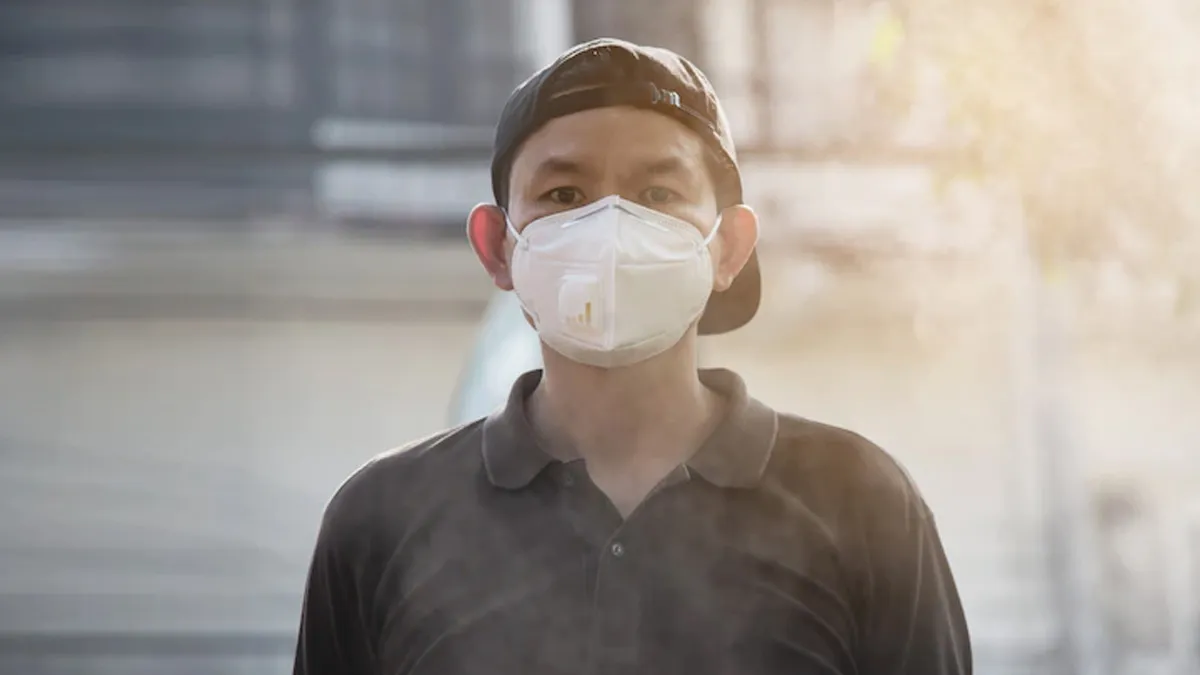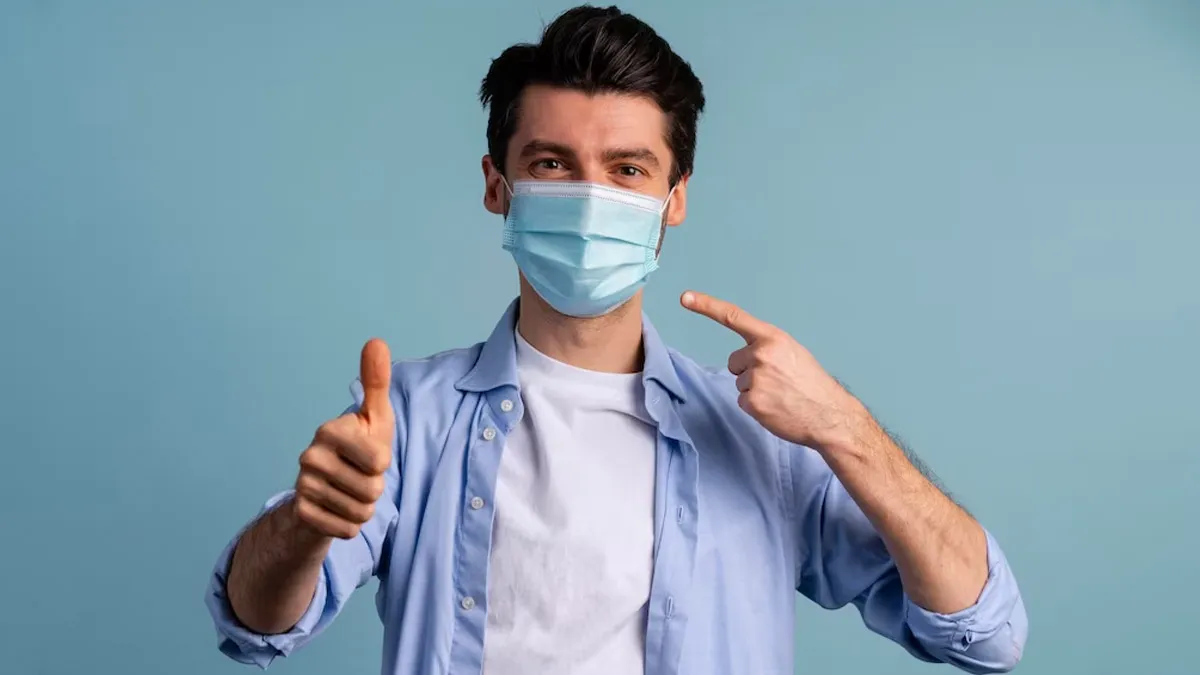
The air in Delhi has turned grey, heavy and hazardous once again. With the Air Quality Index (AQI) soaring past 400 and even entering the “hazardous” category in many zones, ordinary walks or commutes now feel like taking a risk. Air quality has reached hazardous levels, and many residents are wondering whether wearing a mask truly protects them from the harmful effects of pollution.
Table of Content:-
In this setting, many of us reflexively reach for a mask and the popular choice? The N95 mask. But how much protection does it really offer? We spoke to Dr Pooja Ramesh, Senior Specialist Pulmonologist at Aster RV Hospital, Bangalore, to get the facts.
How Effective Are N95 Masks in Delhi’s Pollution Crisis?![]()
Dr Pooja Ramesh explains that N95 respirators are among the strongest commercially available masks for pollution protection when fitted properly. She says, “An N95 mask can filter out at least 95 % of airborne particles, including fine particulate matter, provided the facial seal is tight. But any gap around the nose or chin can reduce that protection significantly.”
What Makes N95 Masks Better Than Cloth or Surgical Masks?![mask for delhi aqi mask for delhi aqi]()
According to Dr Ramesh,
- N95 masks contain electrostatically charged melt-blown filter layers. These traps tiny particles like dust, soot, and smoke much better than other masks.
- Cloth masks block only larger droplets and visible dust, offering minimal defence against fine PM2.5 particles.
- Surgical masks mainly prevent the wearer from spreading droplets, but don’t fit snugly enough to block small airborne pollutants.
- In contrast, N95 masks meet rigorous filtration standards tested under controlled conditions.
- Even with a well-fitted N95, complete protection is impossible. Gaseous pollutants (like ozone, nitrogen dioxide, and carbon monoxide) still pass through or around the mask.
Dr Ramesh points out, “While N95 masks are our best defence outdoors, they cannot filter out all types of pollutants and exposure still occurs through small leaks or during the times when the mask is removed.”
So yes, N95 masks are far superior to basic masks in heavy-pollution situations like Delhi’s but they are not a fix-all.
Who Should Use N95 Masks and How Often?
Considering the levels currently seen in Delhi (real-time readings show AQI over 500 and PM2.5 levels over 300 µg/m³ in some areas), N95 masks are especially important for vulnerable groups. Dr Ramesh further explains:
- Children: Standard N95 masks may not seal properly due to a smaller face size. Child-sized respirators or KN95 variants designed for children are better.
- Elderly and those with lung (asthma, COPD) or heart conditions: These individuals need stronger protection outdoors. If breathing becomes laboured, it’s better to stay indoors with purified air.
The general public stepping out for long periods or commuting in heavy traffic should also use a well-fitting N95.
How Often Should N95 Masks Be Replaced?
According to Dr Ramesh, in worsening pollution like Delhi’s current “hazardous” AQI, N95 masks should typically be replaced every 2 to 3 days with regular outdoor exposure. If a mask feels moist, soiled, or hard to breathe through, it needs immediate replacement. Reusable N95 masks with swap-out filters can be practical during prolonged pollution.
As per the World Health Organization (WHO), air pollution continues to be a severe global health threat, causing an estimated seven million premature deaths each year. Despite efforts, most regions still fail to meet the WHO’s air quality guidelines, with dangerous levels of fine particles (PM2.5) prevalent in many cities.
ALSO READ: In High AQI of Delhi, Can You Run When the Air Quality Is Poor? What Experts Say About Risks
Conclusion
In short: yes, N95 masks can greatly reduce your risk in Delhi’s toxic air, but they are not a complete shield. The combination of a well-fitted respirator, smart behavioural choices, and indoor air quality management offers the best protective strategy. As you step out, especially on high-AQI days, think of your mask as one layer, rather than the only layer of your defence.
How we keep this article up to date:
We work with experts and keep a close eye on the latest in health and wellness. Whenever there is a new research or helpful information, we update our articles with accurate and useful advice.
Current Version
Nov 10, 2025 10:27 IST
Published By : Vivek Kumar



